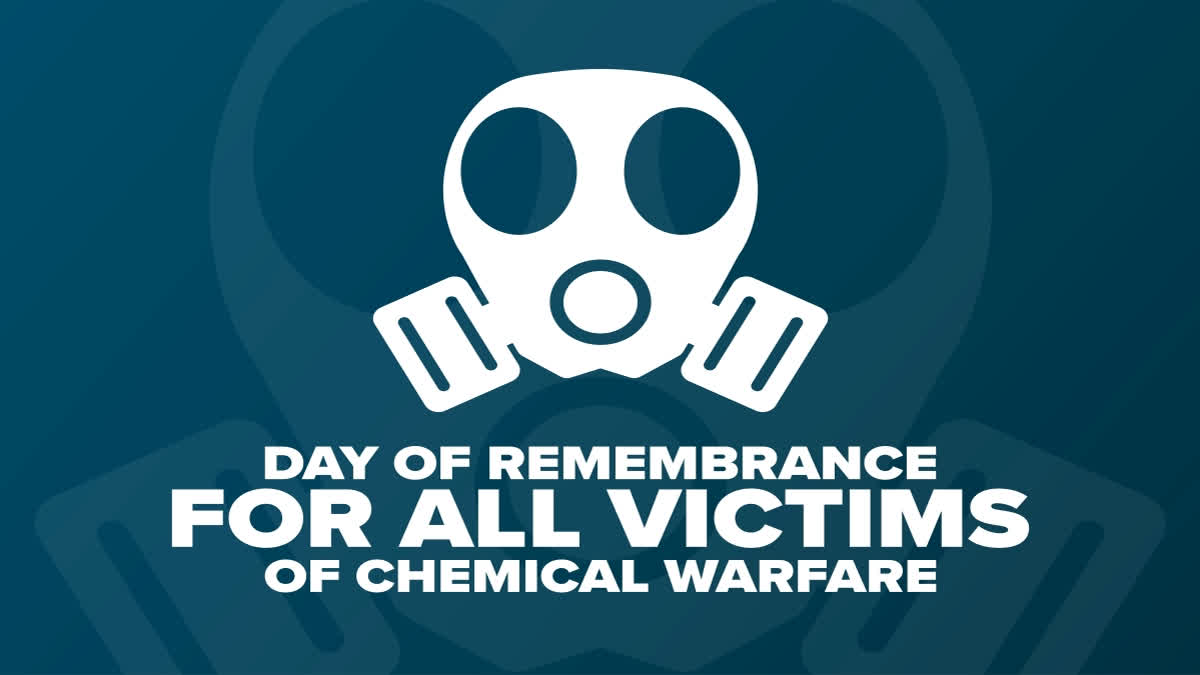Hyderabad: Every year on November 30, the world observes the Day of Remembrance for all Victims of Chemical Warfare as a sombre remembrance of those who have been harmed by the terrible toll of chemical warfare. The United Nations has designated this important day to honour both troops and civilians who have died tragically as a result of chemical warfare, serving as a sobering reminder of the lives lost to the brutality of war.
This day serves as a sobering reminder of both the terrible reality of conflict and the efforts made to shield future generations from its risks, from the mourning of lost lives to the honouring of remembrance. It provides evidence of the advancements made in preserving human life while emphasising the significant obstacles that still need to be overcome in order to completely eradicate the use of chemical weapons.
History: The path towards reducing the atrocities of chemical warfare has been paved with decades of history. The first international move towards outlawing the use of poison bullets was a historic treaty signed in 1675 by France and Germany. This agreement established a standard for subsequent attempts to restrict the use of poisonous weapons. Later agreements, such as the Brussels Convention of 1874 and the Hague Conventions of 1899 and 1907, sought to limit the use of toxic weapons and dangerous gases in combat. These crucial accords established the foundation for subsequent international initiatives aimed at countering the evil of chemical warfare.
The 1993 passage of the Chemical Weapons Convention, which went into effect on April 29, 1997, marked a turning point. This comprehensive convention marked an important event in the global attempt at peace and security by representing an unprecedented global commitment to end the use of chemical weapons.
Significance: The United Nations formally proclaimed November 30 as the Day of Remembrance for all Victims of Chemical Warfare in 2005, acknowledging the historic nature of this agreement and honouring the victims with solemn memory. This memorial day honours the victims while also bringing attention to the threats presented by chemical weapons and the necessity of upholding international agreements intended to bring about enduring peace.
Objective: This day's main goal is to honour and grieve the lives lost as a result of chemical warfare, whether they were soldiers or civilians. It attempts to raise awareness of the worldwide ban on chemical weapons and emphasise the risks associated with them as WMDs. It also highlights how important it is to uphold international law in order to maintain peace and stop similar crimes from happening again.
Mission: Honouring and remembering those who lost their lives to chemical warfare is the heartfelt mission of the Day of Remembrance for All Victims of Chemical Warfare. It serves as a sobering reminder of the human cost incurred by the savagery of war and considers the progress accomplished in preserving future generations. It also emphasises how important it is to keep addressing the unresolved issues surrounding the use of chemical weapons.
How to observe the day?
There are various ways to remember and take action on the Day of Remembrance for All Victims of Chemical Warfare:
1. Reflect and Honour: To honour and remember the victims of chemical warfare, observe a moment of silence or take part in memorial services.
2. Educational Initiatives: Take part in educational programmes to increase public awareness of the risks and repercussions associated with chemical weapons, highlighting the necessity of international cooperation to prevent their use.
3. Advocacy and Action: Encourage governments and organisations to vigorously enforce international laws prohibiting chemical weapons by supporting initiatives calling for stricter observance.
4. Peacebuilding Efforts: Take part in or advocate for initiatives that support peace and conflict resolution, placing a special emphasis on collaboration and diplomacy to avert chemical warfare in future hostilities.



